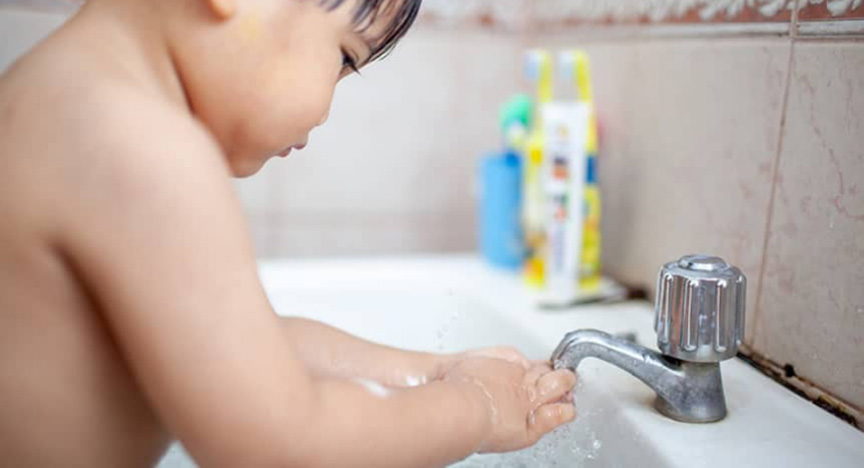
Antibiotics are an important tool to help us fight bacterial infections – and they do a great job too!
But the misuse and overuse of antibiotics means we are at an increasing risk they’ll stop working.
Antibiotic resistance is when bacteria change to protect themselves from the medication, making them difficult or impossible to treat.
“Superbugs” are bacteria that have become resistant to several different antibiotics, and they already live among us.
Dr Julia Clark, infection management and prevention specialist at Children’s Health Queensland, says it’s important to choose medications wisely to help keep antibiotics fighting fit.
“Coughs and colds can make your child feel sick and miserable but antibiotics won’t help them feel better any more quickly,” Dr Clark says.
“Antibiotics are only effective against bacterial infections, not viral infections like colds or flu or COVID. No amount of antibiotics will get rid of your child’s cold or the flu, so please don’t ask your doctor for them.
“If you are usually healthy, your immune system will take care of most upper respiratory tract infections and ear infections by itself.”
But even before you or your family get sick, here are some ways you can help prevent antibiotic resistance.
Wash your hands
Clean hands are key to stopping the spread of disease and infection.
Teach your children to wash their hands with soap and water for 20 seconds every time they’ve used the toilet.
Remember to wash your and your child’s hands after coughing or sneezing too. This will reduce the spread of viruses and bacteria.
Parents and carers should also remember to wash their hands with soap and water after changing a dirty nappy.
Carrying alcohol-based hand sanitiser in your purse or bag is great way to keep your and your children’s hands clean when you don’t have immediate access to soap and water.
Detergent or dish soap can also be used to clean your hands, but this can dry out your skin.
Keep a bar of soap or a bottle of liquid hand soap next to your kitchen sink and remember to wash your hands before preparing food.
Get vaccinated
One of the most common infections adults and children get is the flu.
The flu is a viral infection and cannot be treated with antibiotics.
While most people with the flu experience mild or moderate symptoms, it can cause serious illness that requires hospitalisation.
Older people are particularly at risk of serious illness from the flu. It’s important to stay home when you or your family are sick to protect others who are at a high risk like grandparents.
The best way to protect yourself, your children and others from the flu is by getting the annual flu vaccine.
It is important to get the flu vaccine every year as this ensures a level of protection against recent variants.
It is also important that your children get all the vaccinations under the National Immunisation Program.
Early milestone vaccinations can prevent serious bacterial infections including diphtheria, pertussis (whopping cough), haemophilus influenzae, pneumococcal, tetanus and meningococcal.
Treat serious infections early
Sepsis is a leading cause of death and disability in children with more than 50 children in Australia dying of sepsis every year.
It is a life-threatening illness that occurs when the body is fighting an infection but starts to attack itself.
Sepsis is preventable but, when it does occur, it is a medical emergency that required rapid treatment, including antibiotics.
If we as the community do our bit to choose and use antibiotics wisely and combat antibiotic resistance, we can help preserve antibiotics as an effective treatment for children and adults with life threatening infections.
If you feel your child is more unwell than ever before or this illness is different from other times – ask your doctor “could it be sepsis?”.
Sepsis is known as the “silent killer” as its symptoms often mimic that of other, less serious illnesses such as the flu and gastro.
Children with sepsis can deteriorate rapidly so early recognition, diagnosis and treatment is vital.
Any one of these symptoms may mean your child is critically unwell and you should go to hospital straight away:
- Fast breathing or long pauses in breathing
- Very blotchy blue or pale skin
- Feels abnormally cold to touch
- Rash that doesn’t fade when pressed (glass test)
- Drowsy or difficult to wake up or confusion
- Floppy
- Fit or convulsion
- A lot of pain or very restless